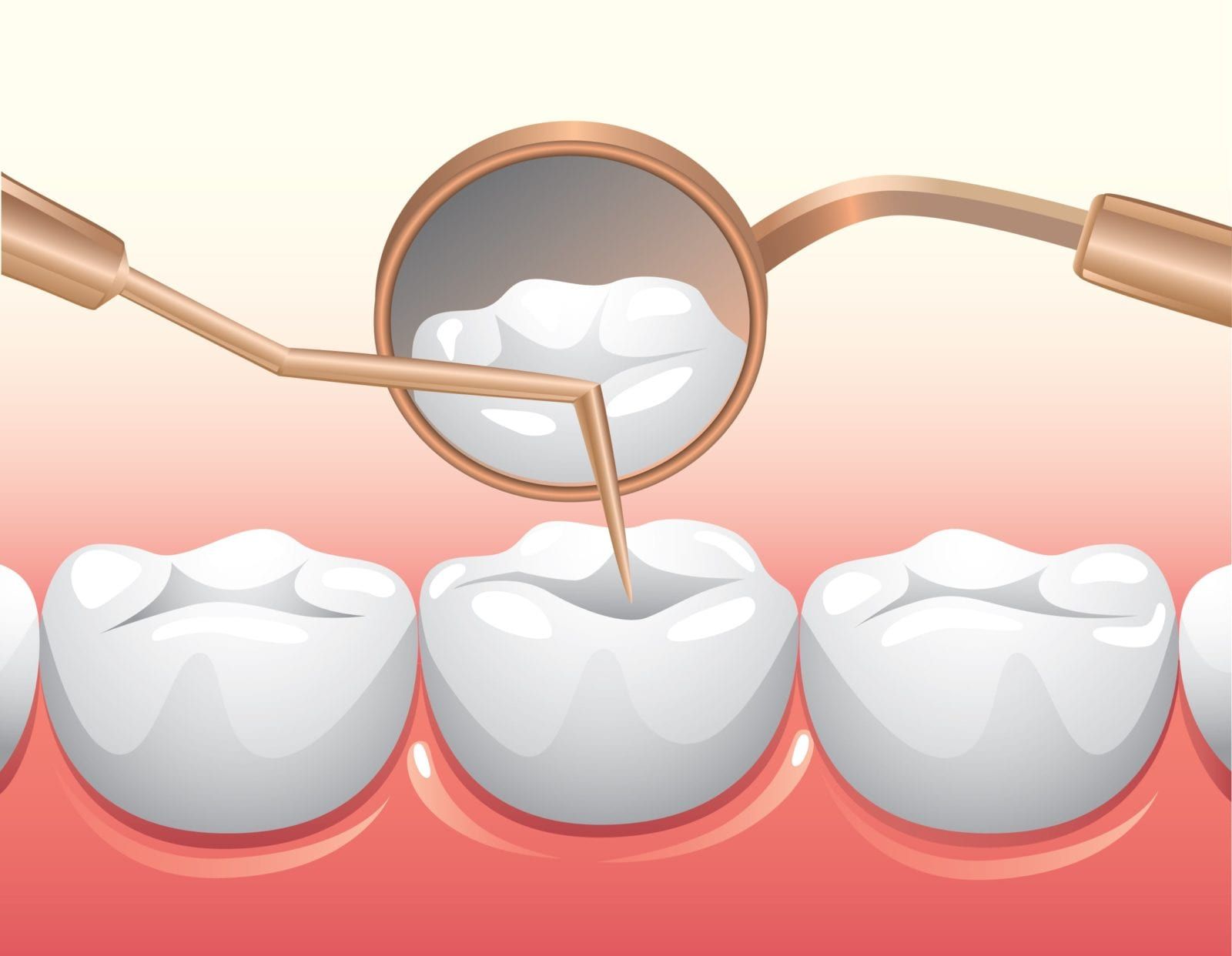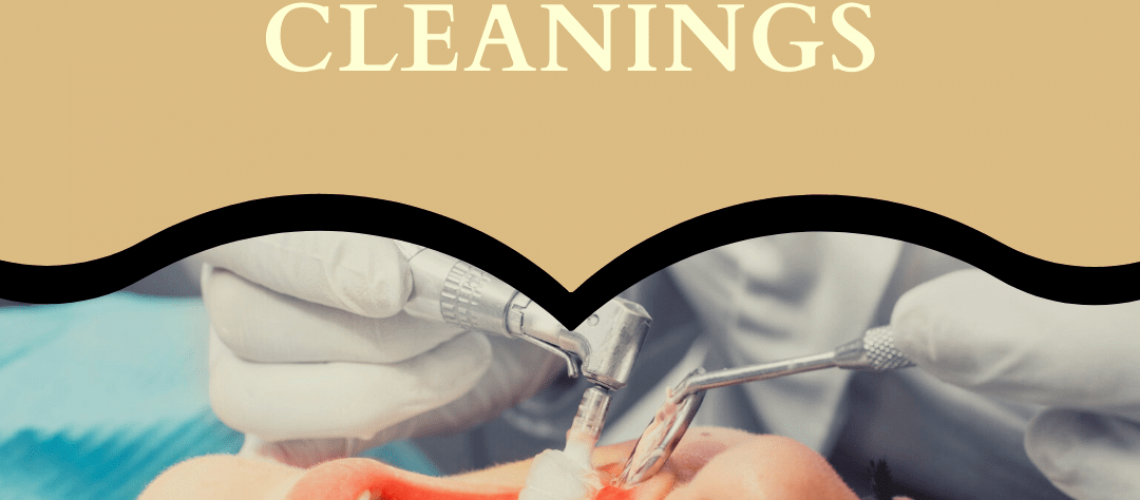Did you know that the American Dental Association recommends having your teeth professionally cleaned at least once every six months? This is because research shows that cleanings every six months have been associated with decreased rates of tooth decay and gum disease. For this reason, semi-annual dental cleanings are recommended as being one of the best preventative measures against dental issues.
Like regular brushing and flossing, regular dental cleanings remove excess plaque and bacteria from your mouth. However, professional cleanings remove plaque from hard to reach areas that you may have missed during your normal routine. Additionally, dental cleanings can also remove tartar, which is plaque that has been left in place so long it has hardened.
Did you also know that there are different types of dental cleanings? Depending on things like your oral health and the amount of plaque on your teeth, your dentist may opt for one of the following:
Prophylaxis Cleaning

This type of cleaning is most commonly performed on patients. It is a preventative dental cleaning that is often used by dentists to remove excess plaque and tartar. When having a prophylaxis cleaning, your dental hygienist will begin by using a dental scaler to remove plaque and tartar from the front and back of your teeth. Some dental scalers are metal scrapers, while others use a solid stream of water. After the scaler, your teeth will be brushed with a gritty toothpaste, flossed, and rinsed. The final step of a prophylaxis cleaning is to apply a topical fluoride treatment. This will strengthen your tooth enamel and help to prevent future plaque buildup.
Scaling and Root Planing
This type of cleaning is used in cases where the gums have receded, or pulled away from the teeth and exposed the tooth roots. As its name suggests, there are two parts to this cleaning. The first is scaling, which is similar to a prophylaxis cleaning, however the tooth roots are also scaled to remove plaque and tartar. Next, root planing is the process of smoothening out the tooth roots to encourage the gums to reattach themselves.
Periodontal Maintenance
Periodontal maintenance cleanings are intended for individuals who have gum disease, specifically periodontitis. Periodontitis cannot be cured, but it can be managed to prevent it from getting worse. The best way to manage advanced gum disease is by having regular scaling and root planing cleanings. Therefore, periodontal maintenance cleanings are specially designed to slow the progression of gum disease. Depending on the severity of gum disease, periodontal maintenance cleanings are often scheduled more frequently than normal preventative cleanings.
Debridement Cleanings
Debridement cleanings are heavy duty teeth cleanings that are rarely performed. Cases requiring dental debridement are characterized by excessive amounts of plaque and tartar that have accumulated in layers between the teeth and in the gums. These cases usually occur in people who have very poor oral hygiene or have never had a dental cleaning before. Debridement cleanings use a special electric tool to loosen and remove tartar, then a prophylaxis cleaning is performed to remove plaque. This type of cleaning is usually completed one quadrant at a time with the use of dental anesthetics.
Overall, dental cleanings are essential to your oral health, no matter what type of cleaning. The majority of people will simply need to visit their dentist every six months for a prophylaxis cleaning. However, your dentist may recommend other types of dental cleanings in cases where gum disease or excess tartar is present.

Dr. Mark and Dr. Gina Covington are committed to providing their patients with the highest level of care. Both doctors are members of the Academy of General Dentistry as well as the American Dental Association. Locally, both belong to the Western Piedmont Dental society and the Foothills Dental Continuum. Because dentistry is a dynamic field, continued education is a paramount concern. Both Dr. Mark and Dr. Gina have completed several hundred hours of continued education to become proficient in the science and placement of dental implants. This course of study has allowed them to become Fellows of the International Congress of Oral Implantologists.


